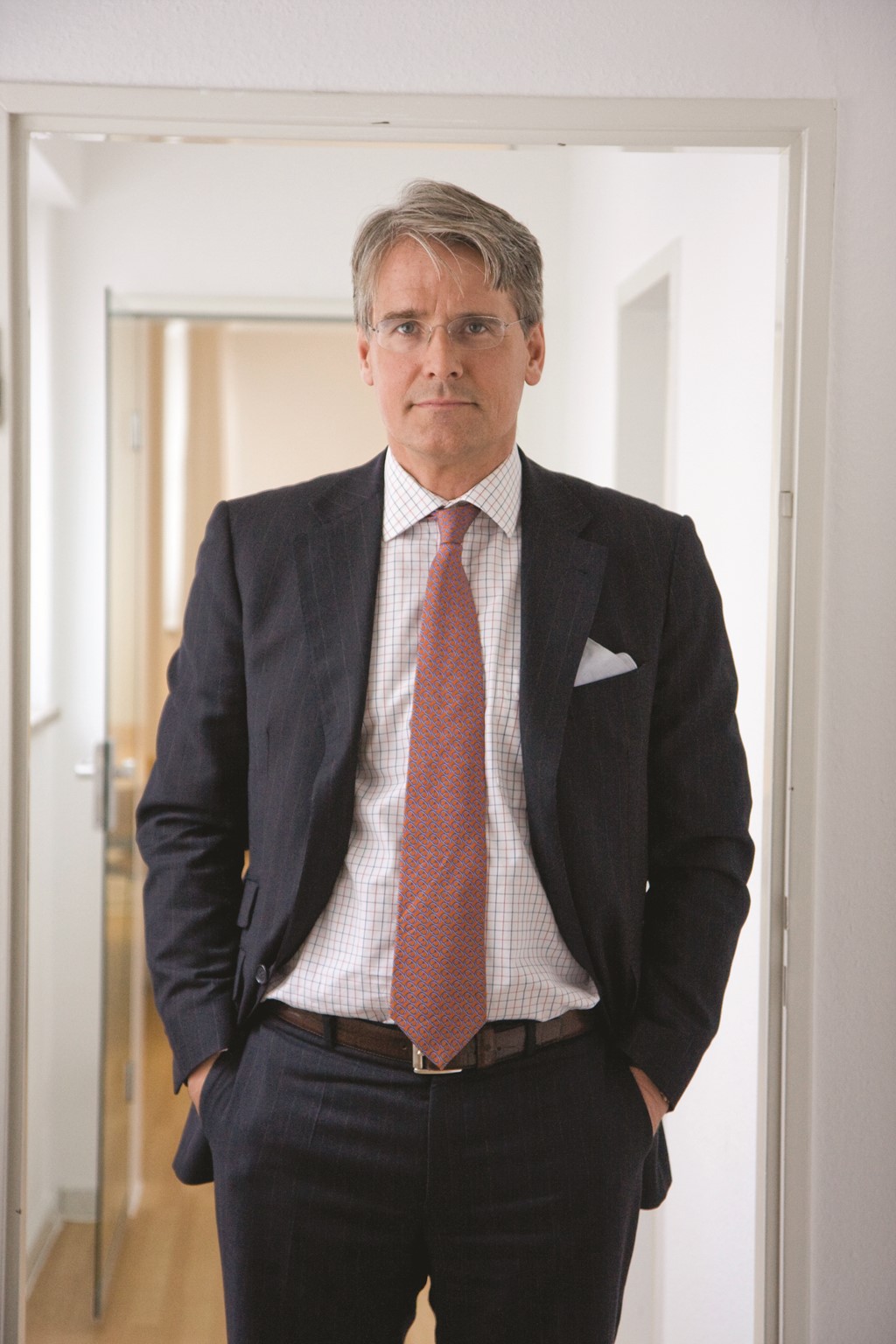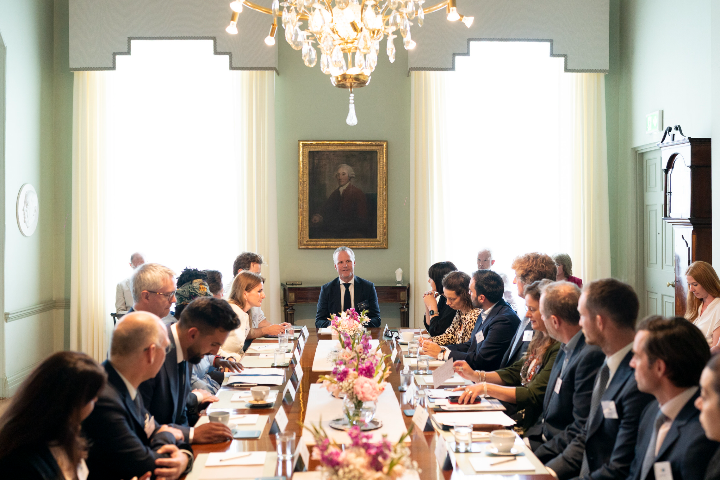
Meet: Christer Gardell
29 October 2018
Johanna Tegelström
He has been called one of Europe’s biggest activist investors and Cevian Capital, the company he co-founded in 2002, has famously made radical changes to major companies such as Ericsson, ABB and Volvo through an “active ownership”. The LINK spoke with Christer Gardell after he gave a presentation to SCC Members about his career, the importance of a competent management, his past investments, and Cevian’s approach.
Christer co-founded Cevian in 2002 and the investment firm is now one of Europe’s largest with more than €13bn in assets under management. Cevian’s strategy is to acquire undervalued and misunderstood companies that are overlooked by investors, according to Christer. Longterm value is then created through an active ownership, where Cevian works constructively with management to improve strategy and growth.
Christer is well-known for his often-bullish ways to talk about the mistakes and failures of the companies that Cevian acquires and is not afraid to criticise the management and the Board of Directors for them. Cevian and Gardell are now well-known for their hands-on approach, shaking up boardrooms and forcing companies to go through a big transformation.
Christer said that as a result, companies can be wary when finding out that Cevian is stepping in as an owner as it is natural for people to react badly to change. He said: “Our business idea is change, we invest in change. We are leading a new chapter of the company that is supposed to lead to improvement. A lot of people believe change is something negative, so some get scared. We often see that where there is a strong board and strong leaders, it is seen as a motivating power when we come in whereas companies that do not, see it as a threat. But the most common human reaction to change is to get defensive.”
But Cevian has a strong track-record of turning faulting and struggling companies around and have made some very successful investments over the last few years. At the end of 2017, Cevian sold its stake in Volvo Group for a reported €3.25bn, after being involved with the company since 2006. Christer referred to it as a “fantastic investment” and one he was proud of. “Numbers don’t lie,” Christer said when being asked to define what a good investment is to Cevian. But he added: “Of course there needs to be a good return on investment but you also want that return to be the result of change and an improvement in the company. You can get lucky in terms of the current economic situation as well, but you want the success to be down to skills rather than luck.”
Christer said that Cevian is very careful when it comes to risk and during his 22 years as an investor he can only recall two investments that have had a negative return which he is unhappy about. He said: “I hate losing money so everything that does not return a profit is a failure. However, going back 22 years, our track record has been strong. We have been good at avoiding bad investments.”
Christer said Cevian consider the level of risk before investing and how they can have an impact on the acquired business. He said: “That makes it hard for us to invest in biotech or the pharma industry for example as a lot is left to chance in those sectors. Some industries are a bit trickier and don’t fit into our strategy. We like companies that have a good foundation but that has somehow done something silly which has made them fallen out of favour with the stock market.” Cevian now has offices in Stockholm, London and Zürich and Christer said that the company will continue to focus on Europe as its main market. Christer said Cevian believes in “being local, having a close network and knowing the people in the market”.
“Having feet on the ground and knowing the market is very important so we are very careful when it comes to geography,” he said. He added that Sweden remains Cevian’s main market as it has a “very good climate for an activist from a regulatory point of view”. “But we also like the UK a lot while Germany is a bit trickier,” he added. In Germany, Cevian currently holds a stake in elevator company ThyssenKrupp while in the UK it has invested in insurer RSA. He said that the outcome of the current Brexit negotiations is not going to be positive for Swedish companies in the UK but he added that he believes that there is a slight “overreaction” to the full impact of the UK leaving the European Union.
“I don’t think companies have to be as worried as they are,” he said. When asked about what he believed his biggest strengths are that have contributed to his success, Christer said: “I think it is that I am unpretentious and have the ability to change my opinion when presented with new facts. As a decision maker this is very important. Some people don’t like being presented with facts that goes against their own conclusion. But you have to be pragmatic.”
Cevian is constantly looking for new opportunities and new companies to invest in and the financial world is always keeping a close eye on what Christer, who has been called one of the most influential activist investors in the world, will do next.

.jpg)
.jpg)
